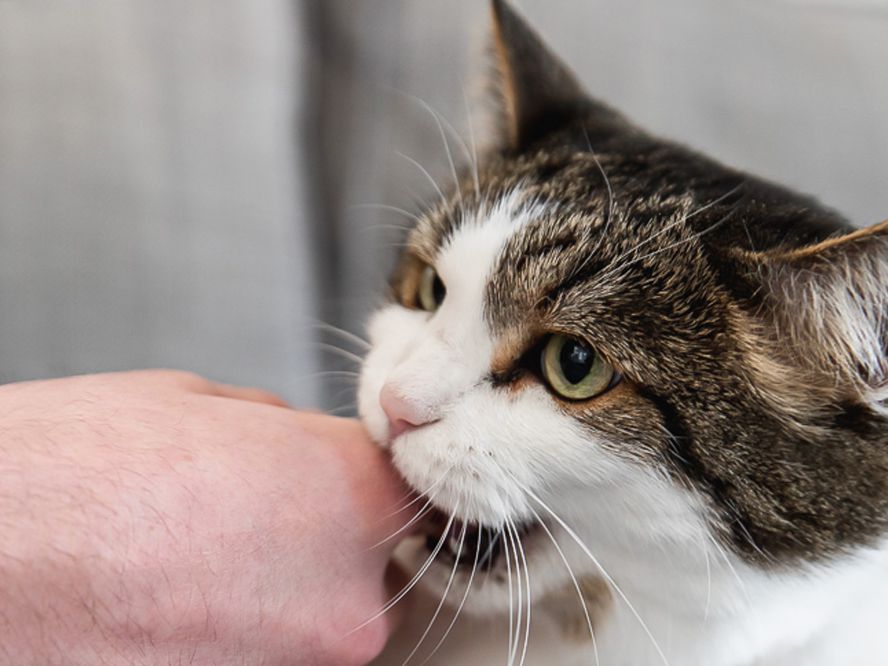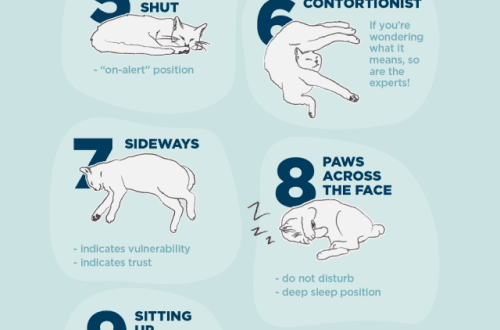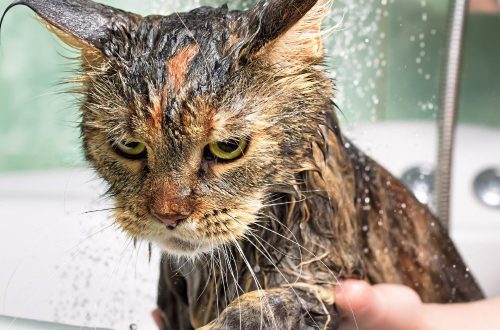
Bitten by a cat, what to do?
What to do so that the cat does not bite?
Most often, the person is to blame for the aggressive behavior of the pet. The exception is when a pet has contracted rabies or other diseases that affect the nervous system. In order for the cat not to bite, you should follow a number of rules:
- The cat needs to be trained. The owner should be an authority for her, and at the same time she should not be afraid of him. Relationships should be built on trust, then neither a kitten nor an adult cat will bite the owner, and when guests appear, the animal will feel protected and will not attack strangers just like that. In education, special attention should be paid to the socialization of the pet;
- Kittens often bite human hands while playing. This is natural, and in this case they should not be scolded. Instead, you need to show that the bite is unpleasant for you – for this, you can gently click the kitten on the nose after each bite. Over time, he will understand that biting is not allowed;
- Cats, like people, differ in character: someone likes to sit on their hands, and someone prefers to just be next to the owner. Do not forcibly hold a pet if he does not like excessive affection and contact;
- When a cat is in pain, not only touching, but also any contact with a person can be unpleasant for her. In this case, it can become aggressive and even bite. If there is a suspicion that the pet is ill, show it to the veterinarian;
- Pets need to be protected from stress. Any cat in a state of fear will bite to protect itself or its territory, these are natural instincts and cannot be blamed for this.
It is important to remember that the behavior of stray cats and kittens is especially unpredictable, so direct contact with them should be avoided.
What to do if a cat has bitten?
Cat saliva contains a huge amount of bacteria that are unusual for the human body. If they enter the bloodstream, they can cause various diseases, but with proper care, the risk of their development is minimal.
If the wound is shallow and the bleeding is not strong, then the bite should be washed with warm water and a soap solution containing alkali, which destroys some of the bacteria. Then the wound must be treated with an antibiotic ointment and a bandage applied.
If the bite turned out to be deep, then the wound needs to be washed longer and more thoroughly, for this you can use chlorhexidine. After the bleeding stops, it is better to treat its edges with any antiseptic and bandage it.
The danger is bites from cats with rabies. If after a bite you have a fever, the wound is very swollen and reddened, you should immediately consult a doctor!
23 2017 June
Updated: December 26, 2017





